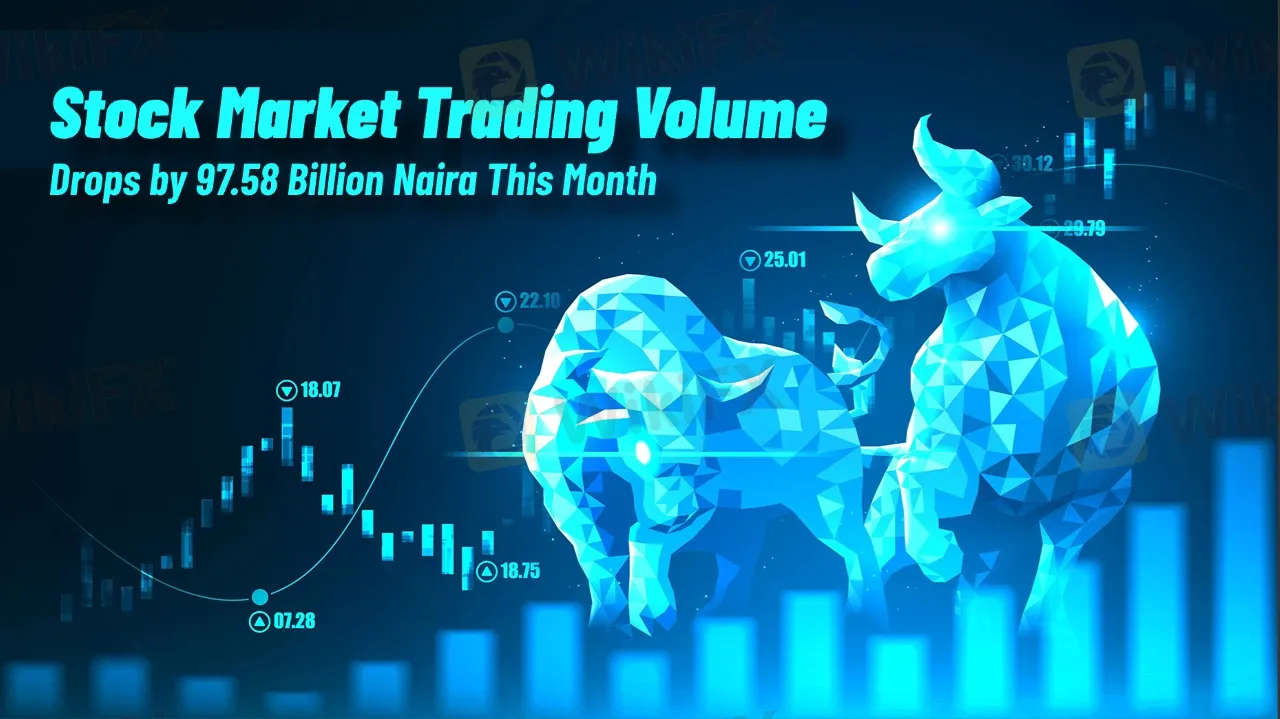简体中文
繁體中文
English
Pусский
日本語
ภาษาไทย
Tiếng Việt
Bahasa Indonesia
Español
हिन्दी
Filippiiniläinen
Français
Deutsch
Português
Türkçe
한국어
العربية
Stock Market Trading Volume Drops by 97.58 Billion Naira This Month
Abstract:In February, Nigeria's stock market trading volume dropped by 97.58 billion naira, with foreign investors pulling back. Can domestic investors sustain the market?

In February 2025, total stock trading volume on the Nigerian Exchange fell to 5,094.7 billion naira, marking a 16.07% decline from January, a drop of 97.58 billion naira.
The decrease was mainly driven by lower market activity, particularly a sharp fluctuation in foreign investments. However, compared to the same period in 2024, trading volume still saw a 42.36% increase, indicating a positive long-term trend.
The key factor behind the fluctuations is the changing behavior of both domestic and foreign investors. While domestic trading fell by 12.83% in February, it remained the dominant force in the market.
Meanwhile, foreign investor participation plummeted by 40.36%, reflecting caution amid market uncertainties. Additionally, retail investors showed reduced activity, while institutional investors maintained a relatively stable influence.
Challenges Ahead for the Market
Looking ahead, uncertainties remain, particularly regarding the long-term impact of foreign capital outflows. Macroeconomic conditions, inflationary pressures, and currency fluctuations could continue to affect market performance.
However, the steady participation of domestic institutional investors may help stabilize the market. Investors should closely monitor market trends and adjust their strategies accordingly to navigate potential risks and opportunities.

Disclaimer:
The views in this article only represent the author's personal views, and do not constitute investment advice on this platform. This platform does not guarantee the accuracy, completeness and timeliness of the information in the article, and will not be liable for any loss caused by the use of or reliance on the information in the article.
Read more

Webull Launches SMSF Investment Platform with Zero Fees
Webull introduces commission-free SMSF trading, offering over 3,500 US and Australian ETFs, with no brokerage fees and enhanced portfolio tools.

April Fool's Day Scam Prevention Experience Collection
Share your “Forex Fraud Prevention Experience”, win WikiFX points and gold rewards!

How Will the Market React at a Crucial Turning Point?
Safe-haven assets like gold and U.S. Treasuries are surging, while equities face mounting pressure. As this pivotal moment approaches, how will the market react?

Gold Prices Climb Again – Have Investors Seized the Opportunity?
Gold prices have hit record highs for three consecutive days, with a remarkable 19% gain in the first quarter, marking the strongest quarterly performance since 1986. As market risk aversion rises, demand for gold has surged significantly.
WikiFX Broker
Latest News
How Crypto Trading Transforms FX and CFD Brokerage Industry
FCA Warns Against 10 Unlicensed or Clone Firms
CySEC Warns Against 14 Unlicensed Investment Websites
Top Currency Pairs to Watch for Profit This Week - March 31, 2025
Will natural disasters have an impact on the forex market?
Philippines Deports 29 Indonesians Linked to Online Scam Syndicate in Manila
Exposing the Top 5 Scam Brokers of March 2025: A Closer Look by WikiFX
Gold Prices Climb Again – Have Investors Seized the Opportunity?
Webull Launches SMSF Investment Platform with Zero Fees
Australian Regulator Warns of Money Laundering and Fraud Risks in Crypto ATMs
Currency Calculator







